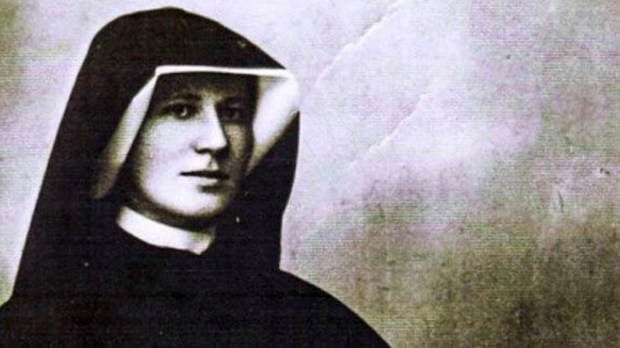Catholics in Poland have been formed by a deeply Christian culture, devoted to the Sacred Heart and consecrated to their Queen, Our Lady of Częstochowa.
It was through the lens of this strong Catholic faith that St. Faustina Kowalska prophetically wrote in her Diary, “As I was praying for Poland, I heard the words: I bear a special love for Poland, and if she will be obedient to My will, I will exalt her in might and holiness. From her will come forth the spark that will prepare the world for My final coming (Diary, 1732).”
While generally believed to be referring to St. John Paul II, these prophetic words have come true in more ways than one. Raised in the bosom of the Catholic Church and purified through the crucible of suffering, Poland has produced at least five saints who literally changed the world.
St. “Brother Albert” Chmielowski
While he may be the least known of the five saints, “Brother Albert” was most influential in the priestly vocation of St. John Paul II. Chmielowski was initially a relatively famous artist who studied with some of the greatest painters of his time. However, that life did not satisfy him and he sought to serve the poor. He became a member of the Third Order of Saint Francis and devoted himself to caring for the poor and homeless of Kraków, selling his paintings to raise money for a homeless shelter. Calling himself “Brother Albert,” he would eventually found the Albertine Brothers and Sisters and establish homes for the poor across Poland. John Paul II wrote a play about this saintly man called “Our God’s Brother,” and said of him, “I found in him a real spiritual support and example in leaving behind the world of art, literature and the theater, and in making the radical choice of a vocation to the priesthood” (Gift and Mystery).
St. Faustina Kowalska
Born Helena Kowalska, St. Faustina wanted to devote herself to God at a young age, but was initially refused entrance to a convent because of her poverty. After being a housekeeper for several years, she joined the Congregation of the Sisters of Our Lady of Mercy in Warsaw. Kowalska soon became the recipient of numerous private revelations from Jesus in the 1930s. She was instructed to write down what she experienced in a Diary, which ended up being a full 600 pages long! It was through this Diary that the message of Divine Mercy slowly began to spread, leading to the worldwide celebration of Divine Mercy Sunday and Pope Francis’ call for a Jubilee Year of Mercy.
St. Maximilian Kolbe
This holy man’s life can be summarized by a vision of Our Lady that he had as a child. “That night I asked the Mother of God what was to become of me. Then she came to me holding two crowns, one white, the other red. She asked me if I was willing to accept either of these crowns. The white one meant that I should persevere in purity, and the red that I should become a martyr. I said that I would accept them both.” Kolbe would devote himself to Mary Immaculate for the rest of his life and founded a Franciscan monastery that spread devotion to Our Lady through printed publications. During the Nazi occupation, Kolbe sheltered 2,000 Jews at his monastery and was eventually arrested and sent to the concentration camp at Auschwitz. It was at this camp that Kolbe freely gave up his life in place of another man. His example of selfless love continues to inspire the world.
St. John Paul II
Known by many as “St. John Paul the Great,” John Paul II helped topple Communism and changed the world’s perception of Catholicism through his loving example and youthful ardor. He will go down as one of the greatest saints of all time.
Bl. Jerzy Popiełuszko
A simple priest who staunchly defied the Communist regime in the 1980s, Popiełuszko was one of the most influential figures of the “Solidarity” movement in Poland. He opposed the unjust laws of the Communist party through his sermons and his monthly open-air “Masses for Freedom.” His words were so popular among the Polish people that they were broadcast by Radio Free Europe. Thousands of people would attend his Masses and his peaceful resistance to Communism bolstered those fighting for change. His opposition did not go unnoticed and he was assassinated by Security Police, causing a national uproar. Popiełuszko’s example kept the Polish people’s hopes alive for a free Poland, which was realized a few years after his death.
These five saints have provided much more than a “spark” that has changed the world and prepares us for our Lord’s second coming.

